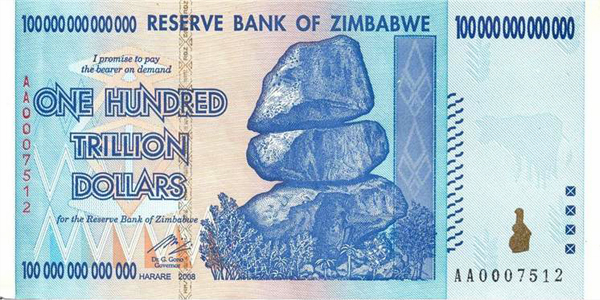Horse Hockey!!! The United States is not going bankrupt and never will. Just take a look at this chart.
http://www.optimist123.com/.shared/image.html?/photos/uncategorized/2007/04/09/piechart200701.gif
It's a few years old. The amounts have increase but the percentages haven't changed that much. You can clearly see that 43.5% of the government debt is owed to itself in the form of inter-government loans.
Another 30.7% of the debt is owned by the US public. The remaining 25.8% is owed to just about every country on earth. When I say country, I mean not just the government but all the banks, corporations, and individuals in that country.
We never actually pay off debt, we just refinance each year. So you ask what if China or Japan refuses to loan us any money; in other words they sell all their treasury bonds and US dollars. The US dollar would go down the toilet with respect to that countries currency which will make their goods expensive in the US and our goods a bargain in their country. This would hurt them almost as much as it would hurt us.
So do we care how high our debt goes up? Of course we do. As the ratio of our debt to the GNP rises faster than other nations, investors demand higher interest on treasury bonds forcing up interest rates and increasing inflation. The dollar looses strength making foreign goods more expensive increasing inflation. This puts a damper on the economy and brings down government revenues forcing the government to borrow even more money. Fortunately when this happens most of the rest of the world has the same problem.
Many people try to compare their personal finances or their business to government finances. How many times have we heard, "If I ran my business like that....". But there is a big difference. The government has an unlimited line of credit plus it can print as much money as it needs.
In summary, if the government piles on too much debt too fast it won't go broke, but we will suffer due to high inflation and higher taxes.
http://www.optimist123.com/.shared/image.html?/photos/uncategorized/2007/04/09/piechart200701.gif
It's a few years old. The amounts have increase but the percentages haven't changed that much. You can clearly see that 43.5% of the government debt is owed to itself in the form of inter-government loans.
Another 30.7% of the debt is owned by the US public. The remaining 25.8% is owed to just about every country on earth. When I say country, I mean not just the government but all the banks, corporations, and individuals in that country.
We never actually pay off debt, we just refinance each year. So you ask what if China or Japan refuses to loan us any money; in other words they sell all their treasury bonds and US dollars. The US dollar would go down the toilet with respect to that countries currency which will make their goods expensive in the US and our goods a bargain in their country. This would hurt them almost as much as it would hurt us.
So do we care how high our debt goes up? Of course we do. As the ratio of our debt to the GNP rises faster than other nations, investors demand higher interest on treasury bonds forcing up interest rates and increasing inflation. The dollar looses strength making foreign goods more expensive increasing inflation. This puts a damper on the economy and brings down government revenues forcing the government to borrow even more money. Fortunately when this happens most of the rest of the world has the same problem.
Many people try to compare their personal finances or their business to government finances. How many times have we heard, "If I ran my business like that....". But there is a big difference. The government has an unlimited line of credit plus it can print as much money as it needs.
In summary, if the government piles on too much debt too fast it won't go broke, but we will suffer due to high inflation and higher taxes.


